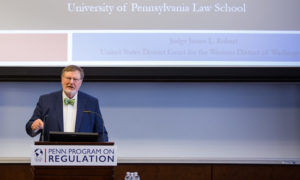
President Trump expands travel bans, Secretary RFK, Jr. overhauls vaccine panel, and more…
IN THE NEWS
- President Donald J. Trump issued a proclamation restricting travel to the United States from over 20 countries. The proclamation cited deficient screening procedures, “exploitation” of the American visa system, and refusal to accept deported nationals as the bases for the travel restrictions on the targeted countries. The proclamation imposes a complete travel ban on nationals of Afghanistan, Burma, Chad, Republic of the Congo, Equatorial Guinea, Eritrea, Haiti, Iran, Libya, Somalia, Sudan, and Yemen. It also restricts the issuance of certain visas to nationals of Burundi, Cuba, Laos, Sierra Leone, Togo, Turkmenistan, and Venezuela. Exemptions apply to permanent U.S. residents, dual citizens, refugees admitted prior to the ban, Afghan allies of the U.S., and Iranian immigrants fleeing ethnic or religious persecution, among other categories of individuals.
- President Trump signed an executive order to address threats from unauthorized unmanned aircraft systems (UAS). The order establishes a federal task force to propose solutions to drone-related risks and directs the Federal Aviation Administration to restrict flights over critical infrastructure. In addition, the order aims to prevent illegal drone operations by authorizing the use of drone-detection technologies by executive agencies and creating a federal drone defense training center to secure major events, such as the 2026 FIFA World Cup. The order emphasizes the need for immediate action to protect national airspace, explaining that drug cartels use UAS to smuggle fentanyl across U.S. borders.
- A federal judge ruled that the Trump Administration may no longer detain or deport Mahmoud Khalil—a Palestinian‑American Columbia University graduate and pro‑Palestinian activist—on the basis of a rarely cited provision of the Immigration and Nationality Act. Using this statute, the State Department had determined that Khalil’s presence harms U.S. foreign policy. Judge Michael Farbiarz held that continuing Khalil’s detention for speech and protest activity violated his First Amendment rights and caused “irreparable harm” to his reputation and freedom. The court paused Khalil’s release order until June 13 to give the government time to appeal but barred further detention under the statutory provision.
- U.S. Secretary of Health and Human Services Robert F. Kennedy, Jr. appointed eight new members to the Centers for Disease Control and Prevention’s Advisory Committee on Immunization Practices. These appointments come just two days after the removal of the existing 17-member panel appointed by President Biden. Critics argued that the new panel lacks broad vaccine expertise—although some members previously held federal health roles. Supporters praised the shift as a win for “medical freedom.” Public health experts, however, warned that the appointments may erode trust in vaccine guidance and reflect an anti-vaccine ideology at odds with scientific consensus.
- The U.S. Department of State ordered U.S. embassies and consulates to resume processing student and exchange visitor visas for Harvard University following a federal court order that halted the Trump Administration’s attempt to block international students from attending the school. An internal State Department message, signed by U.S. Secretary of State Marco Rubio, reversed earlier guidance instructing consular officers to deny such applications and reportedly stated that “no such applicants should be refused.” The directive follows a temporary restraining order issued by the U.S. District Court for the District of Massachusetts, which expressed concern that consulates had failed to process visas despite earlier court action.
- A federal judge ruled that the U.S. Office of Refugee Resettlement must revisit cases of migrant children currently detained under strict sponsor identification requirements imposed by President Trump. Judge Dabney Friedrich of the U.S. District Court for the District of Columbia found that the agency’s policy—instituted without public notice—led to prolonged detention and failed to justify how it balanced fraud prevention with family reunification. Although the court acknowledged legitimate concerns about sponsor fraud—such as instances where children were released to adults using falsified documents—it concluded that the agency likely acted “arbitrarily and capriciously” in adopting a blanket policy without weighing its impact on children and families.
- The U.S. Food and Drug Administration approved Enflonsia—a respiratory syncytial virus (RSV) medication—allowing developer Merck to launch the drug ahead of the RSV season. The shot protects infants from the virus during their first RSV season—typically the fall and winter months when the virus spreads most. One trial found that the shot reduced RSV-related hospitalizations by 84 percent and decreased lower respiratory infections requiring medical attention by 60 percent, through five months. Octavio Ramilo, chair of the department of infectious diseases at St. Jude Children’s Research Hospital, reportedly called the approval “a promising new intervention to help protect infants from RSV.”
- The Montana Supreme Court upheld a lower court ruling that struck down three Montana laws regulating abortion access. These laws ban abortions after 20 weeks—except for medical emergencies—require abortion providers to ask patients if they want to see an ultrasound or listen to a fetal heartbeat, and require patients make at least two in-person visits before being prescribed certain abortion-inducing drugs. In a 6–1 decision, the Montana Supreme Court found that the laws are unconstitutional because they violate the “right to be let alone” and reaffirmed the right to a pre-viability abortion based on a right to privacy.
WHAT WE’RE READING THIS WEEK
- In a George Washington University Regulatory Studies Center comment, Finn Dobkin, a senior policy analyst at the Center, commented on the U.S. Fish and Wildlife Service’s proposed rule to designate 1.6 million acres as critical habitat for the rusty patched bumble bee. Although the designation could strengthen species conservation under the Endangered Species Act, Dobkin urged the agency to consider how additional permitting requirements might hinder other environmental programs such as hazardous waste cleanups and wildfire prevention efforts. He also recommended revisiting the agency’s decision to not consider how the designation might affect private markets or influence public perception of land value.
- In a Brookings Institution essay, John Villasenor, a senior fellow, and Joshua Turner, a project assistant, both at the Brookings Institution, argued that the second Trump Administration will likely relax artificial intelligence (AI) agency regulations while strengthening export controls to limit China’s access to AI chips. Villasenor and Turner predicted that reduced antitrust enforcement could allow for more consolidation of AI companies. They also contended that federal preemption of state AI laws might streamline regulations, enhancing U.S. AI competitiveness globally, though unpredictable AI advancements will demand balanced federal policy responses. Villasenor and Turner emphasized that a focus on competition with China, including increased military AI collaboration with U.S. companies, will shape the administration’s approach through 2029.
- In a working paper, James Hodge, the Peter Kiewit Foundation Professor of Law at the Arizona State University Sandra Day O’Connor College of Law, analyzed the legal threats underlying the resurgence of vaccine skepticism, along with the challenges to public health vaccine policies. Hodge argued that attacks on already approved vaccines could target advisory bodies, such as the Advisory Committee for Immunization Practices, or U.S. Food and Drug Administration regulations, such as those requiring consumer warnings, contributing to an overall spread of misinformation. Hodge concluded that the most effective counters to the politicization of vaccinations will likely be local efforts by health care providers in communicating with patients, state enforcement of school vaccine mandates, and the judicial limits on applying First Amendment protections to vaccine misinformation originating from official sources.
EDITOR’S CHOICE
- In an essay in The Regulatory Review, Molly Candon, an assistant professor at the University of Pennsylvania Center for Mental Health, argued that the lack of insurance coverage for psychedelic-assisted therapy threatens to undermine its potential to address serious mental health conditions. She noted that although drugs such as Spravato—a derivative of ketamine—have received FDA approval and states such as Oregon and Colorado have begun to legalize psychedelic use, insurance reimbursement remains limited. Candon contended that despite evidence of psychedelics’ effectiveness in treating conditions such as PTSD and treatment-resistant depression, regulatory complexity and inconsistent coverage could stall their broader adoption. She warned that without targeted policy reforms, access to psychedelic-assisted therapy may remain limited to those who can afford to pay out of pocket, leaving others behind without treatment.



